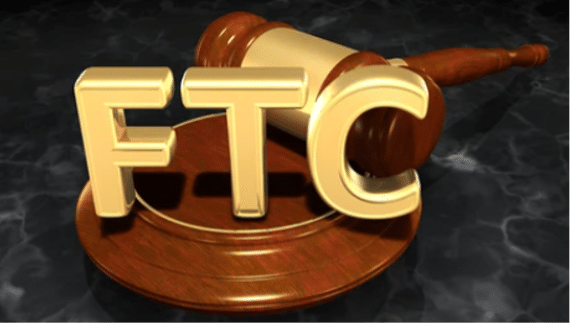FTC orders Mastercard to stop blocking competitors
- December 28, 2022
On December 23, the Federal Trade Commission issued an order requesting that Mastercard abstain from blocking rival debit payment systems’ access to crucial customer data in order for them to complete transactions.
The FTC is taking decisive action and requiring Mastercard to stop employing unethical practices that have enabled it to coerce merchants into using its payment network. This means the end of blocking other debit payment networks, giving consumers more choice in how they conduct transactions online.
The Durbin Amendment of the Dodd-Frank Act mandates that banks offer a selection of two different unaffiliated networks with each debit card, enabling merchants to decide which network they would like to use for their transactions.

Furthermore, this amendment forbids payment card networks from blocking or forbidding merchants from using other networks. Mastercard utilized its exclusive control over tokenization to prevent competing networks from gaining access. Tokenization is a process by which the cardholder’s primary account number is swapped with an alternative one, as stated by the FTC – offering heightened security for accounts stored in digital wallets like Apple Pay and Google Pay. These tokens provide additional protection of your private information, resulting in secure financial transactions each time you use them.
Mastercard and Visa are two of the most prominent payment card networks in America. Annually, processing fees from these networks total billions of dollars and impact every purchase made with a debit card, as outlined by the FTC. Primarily merchants pay for these fees to both issuing banks and payment-card providers.
The FTC’s Bureau of Competition Director, Holly Vedova, proudly declared this a win for both merchants and customers alike. Debit cards are a major part of the payment landscape in America, with over 80% of adults owning at least one and making annual purchases totaling more than $4 trillion. Payment card networks are essential for debit card transactions. As soon as a customer presents their debit card when making a purchase, the network sends the payment details to its corresponding bank and then returns back either approval or denial of it to the merchant. Payment card networks strive hard to earn more business from banks that offer cards and merchants that receive such payments through cards.
In response to the FTC’s order, Mastercard has agreed to supply a rival network with an individual’s account number when they receive a token for processing debit payments. Through their statement, Mastercard emphatically expressed that their current practices are legally valid and offer merchants multiple payment options. As per the FTC’s order, Mastercard is required to provide a competing network with a customer’s personal account number when requested. Furthermore, they are prohibited from stopping others from offering their own payment token services or tokens on Mastercard-branded debit cards, while they must also comply with the guidelines of Regulation II.
The FTC’s Bureau of Competition Director, Holly Vedova, proudly declared this a win for both merchants and customers alike. Debit cards are a major part of the payment landscape in America, with over 80% of adults owning at least one and making annual purchases totalling more than $4 trillion. Payment card networks are essential for debit card transactions. As soon as a customer presents their debit card when making a purchase, the network sends the payment details to its corresponding bank and then returns back either approval or denial of it to the merchant. Payment card networks strive hard to earn more business from banks that offer cards and merchants that receive such payments through cards.
In response to the FTC’s order, Mastercard has agreed to supply a rival network with an individual’s account number when they receive a token for processing debit payments. Through their statement, Mastercard emphatically expressed that their current practices are legally valid and offer merchants multiple payment options. As per the FTC’s order, Mastercard is required to provide a competing network with a customer’s personal account number when requested. Furthermore, they are prohibited from stopping others from offering their own payment token services or tokens on Mastercard-branded debit cards, while they must also comply with the guidelines of Regulation II.
The FTC will soon release a description of their consent agreement package in the Federal Register for public review. After this period has concluded, they will then decide whether to make it a permanent order or not.
At Global Legal Law Firm, our lawyers are familiar with the rapidly changing nature of electronic payments processing, and the ever changing regulations involved, with decades of expertise in ISOs, processors, commercial collections, credit card brands, and other forms of electronic payment processing litigation. Let us guide you through this new and volatile environment, rather than attempting to navigate it on your own.
Recommended Posts
-

The Importance of Reviewing NDAs in the Electronic Payments Industry
Non-Disclosure Agreements (NDAs) are crucial legal contracts designed to protect sensitive...
Read More -

How a Severance Agreement Attorney Can Protect Your Rights
Ensuring Fair Compensation and Legal Compliance in Employment Separation Navigating...
Read More -

The Role of General Counsel in Payment Industry Compliance
Overview of the Payment Industry The payment industry has experienced exponential growth and transformation...
Read More